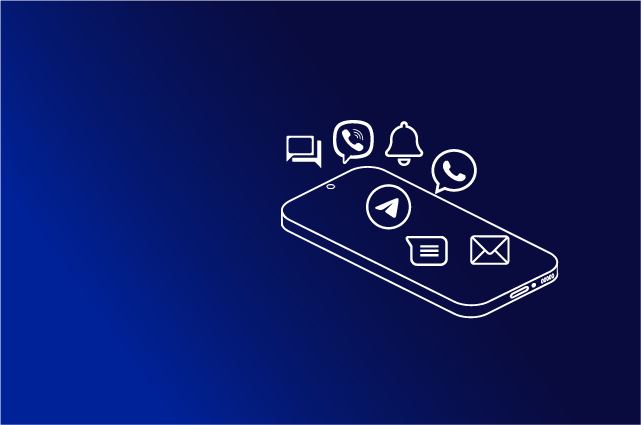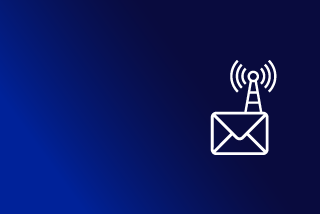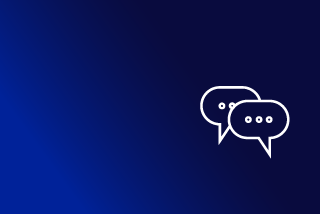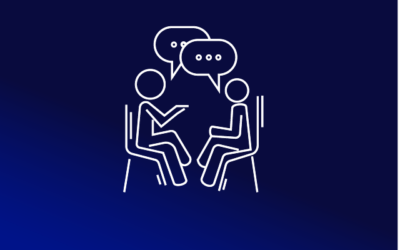One Solution, Infinite Possibilities
Deep dive into the fundamentals of omnichannel messaging platforms and the customer experience problems they help to overcome.
Every year, a new “must-have” channel seems to enter the customer experience ecosystem.
After Apple announced its long-overdue support, RCS became that channel in 2023. Now, it’s the natural successor to SMS.
However, few would advise jumping on the RCS bandwagon without an omnichannel messaging platform foundation.

After all, that foundation provides an open integration framework, allowing brands to stitch together business solutions and communication channels.
As a result, organizations can compose seamless customer journeys and avoid pain points that confuse, disappoint, and – often – infuriate.
When Businesses Bypass Omnichannel Messaging Platforms…
Consider the many initiatives businesses run across messaging channels. These include sending proactive messages, scheduling appointments, running surveys… the list goes on.
Each use case brings many benefits. Yet, when businesses add a new channel, they often implement a boxed solution, running the channel in a silo.
The result is complex communication integrations, a lack of scale, and no single point of cross-channel integration. All this leads to fragmented, impersonal customer journeys.
Now, with more customer engagement touchpoints than ever before – and a shortage of developers to fuse these channels together – this problem perseveres.
Lastly, due to these boxed solutions, sales, service, and marketing teams often have their own licenses for the same channels. Sometimes, these cross several vendors – which ultimately adds significant cost.
Omnichannel Messaging Platforms Bring Everything Together
“Omnichannel messaging platforms empower businesses to deliver consistent level of service and support across every touchpoint by connecting any mainstream digital communication channel with their core solutions,” notes Fabrizio Salanitri, CEO of HORISEN.
Even if the desired integration is not available within the platform provider’s ecosystem, the vendor will likely be able to connect via a restful API.
In doing so, the omnichannel messaging platform offers a single, centralized cloud communications platform that unifies service, sales, and marketing teams.
Moreover, it offers an agile foundation that enables each customer-facing function to create and compose new customer journeys – across emerging digital channels – faster.
Yet, perhaps most pertinently, these journeys are adaptable. Businesses can continually tweak and optimize experiences with minimal developer input.
“This fosters trust and loyalty, ensuring customers consistently receive top-tier experiences regardless of their chosen communication channel,” concludes Salanitri.
The Possibilities Are Boundless
Ultimately, an omnichannel messaging platform makes mixing and matching applications and customer journeys easier, lowering the IT load.
As a result, customer experience professionals can take the lead on journey orchestration projects and continually optimize them.
In addition, they may innovate more quickly – and, as customer experience grows new arms and legs – the possibilities for journey improvements are endless.
Here are three immediately tangible examples of how businesses may leverage an omnichannel messaging platform to bolster customer experiences.
Add Conversational AI to Any Workflow
Nowadays, omnichannel messaging platform providers will offer a bot API that connects digital channels to conversational AI solutions.
As such, brands may increase the scope of a chatbot beyond live chat to various other channels, including RCS, WhatsApp, and social media platforms.
Moreover, they can build new bot experiences for specific channels. This often works well when businesses build commerce bots for social channels – especially Instagram – so customers can make purchases right then and there.
Indeed, it’s not necessary for them to revert to the website, where the customer may lose interest.
Get More Proactive (Or Perhaps Even Pre-Emptive)
Customers often forget to attend their appointments, excursions, and meetings. Proactive communications – across their preferred channel – keep them in the know.
Moreover, proactive messages help to relay delivery delays, system outages, and critical business updates to lessen customer anxieties and build their confidence in the brand.
Pre-emptive messages can also work well, especially in customer service. Such messages inform the customer of a problem – and the resolution – before they’ve noticed something has gone wrong. That’s next-level CX.
Collaborate to Enhance Cross-Function Workflows
With an omnichannel messaging platform that service, sales, and marketing, department leaders may orchestrate journeys together to maximize customer outcomes.
For instance, sales and marketing may secure leads by co-creating flows for when a customer responds positively to a social media promotion.
Alternatively, if marketing sent out an RCS campaign that generated lots of contact center demand, service may go into the campaign and suggest tweaks to prevent problems from reoccurring.
These are just two excellent examples of how an omnichannel messaging platform can inspire invaluable cross-function collaboration.
HORISEN: Enabling Your Omnichannel Messaging Platform
HORISEN helps CPaaS providers develop omnichannel messaging platforms and services for their customers.
Indeed, it offers the tools, capabilities, and APIs that enable seamless interactions across all customer-facing functions.
Additionally, providing CPaaS providers with channels like SMS, WhatsApp, Telegram, Viber, Instagram, FB Messenger, Google Business Chat, RCS, Web Push, Email, etc. it allows companies to communicate with their customers across many different channels in various ways.
Whether the marketing team wants to create targeted campaigns or the brand wants to start two-way communication with their customers, HORISEN’s Business Messenger is the technology enabler.
As Fabrizio Salanitri summarizes: “With over two decades of industry expertise, HORISEN pioneers technology solutions tailored to meet the daily challenges of professionals. Our all-in-one, user-friendly products address the complexities of the mobile-first landscape, offering comprehensive features essential for successful messaging businesses. HORISEN’s omnichannel platform empowers brands to deliver seamless experiences, unlocking the full potential of messaging marketing for today’s professional marketers.”
With service, sales, and marketing all building from the same foundations, businesses may leverage a true omnichannel messaging platform that ultimately benefits customers.
This article was published at CX Today, a trusted source for industry news.


